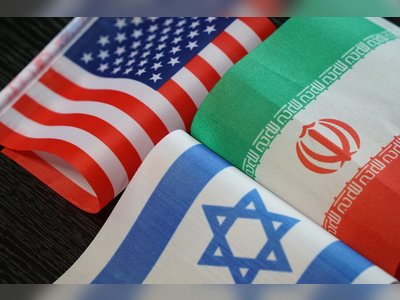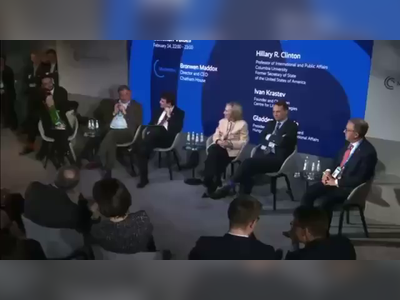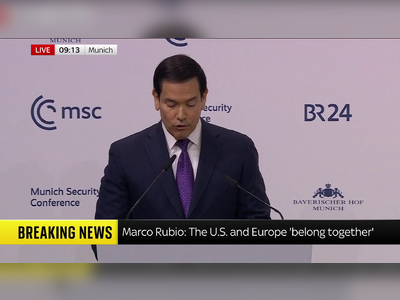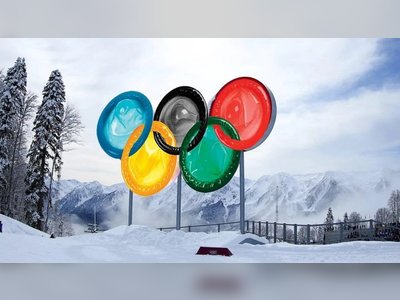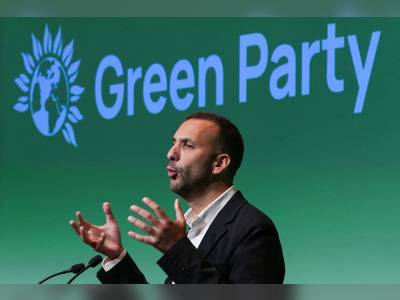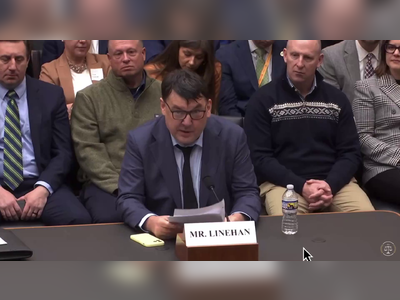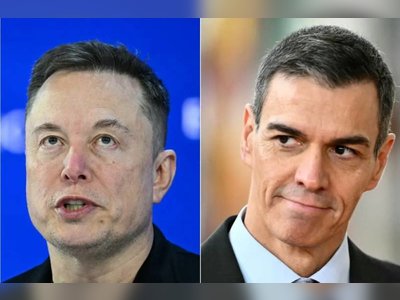Germany's Political Landscape Divided: CDU/CSU and AfD Emergence from Snap Elections
The recent snap elections in Germany have highlighted a stark division reminiscent of the Cold War, with CDU/CSU and AfD dominating the political scene.
The recent snap parliamentary elections in Germany have underscored a renewed division within the country, reflecting historical contrasts between East and West.
The elections resulted in a significant victory for the Christian Democratic Union (CDU) led by Friedrich Merz, which, in coalition with the Christian Social Union (CSU), garnered just under 30% of the vote.
Following closely was the far-right Alternative for Germany (AfD), receiving approximately 20% of the votes, marking its highest success since World War II.
These elections saw the collapse of the so-called 'traffic light' coalition, originally formed by Chancellor Olaf Scholz, with significant losses for the coalition parties, leading to the leader of the Free Democratic Party (FDP), Christian Lindner, announcing his withdrawal from politics.
The election results portray a landscape largely dominated by CDU and AfD, thereby evoking comparisons to the post-war division between the former German Democratic Republic (East Germany) and the Federal Republic of Germany (West Germany).
The historical political schism reemerges as parties realign, with CDU and AfD gaining unprecedented influence.
Merz's CDU is advocating for substantial shifts in Germany’s migration policies, differentiating itself from the previous administration of Olaf Scholz.
Speculations arise around potential policy modifications concerning nuclear energy and Germany’s relationship with China, as well as efforts to reinvigorate the Franco-German axis to bolster European Union trade.
An aspect of Merz’s policy proposals involves increased European defense funding and a stronger stance towards military assistance for Ukraine, specifically advocating for the provision of long-range Taurus missiles that could target Russian territory.
Additionally, there are anticipated significant policy shifts in migration, departing from the previous approach set by former Chancellor Angela Merkel.
The AfD's ascent as the second strongest party in this election reflects a broader trend of right-wing populism across Europe.
The party, under the leadership of Alice Weidel, is positioning itself for a more rigid immigration policy, strongly opposing mass immigration and favoring stringent border controls and deportations while promoting prioritization of European nationals in immigration processes.
AfD has also expressed skepticism towards the EU, calling for a reevaluation of Germany’s place within the Eurozone and advocating for a decentralized European Union model.
In environmental policy, the AfD contests Germany's green energy transition, asserting that it negatively impacts the economy and basing its stance on a critique of what it describes as 'climate hysteria'.
Weidel's leadership represents a call for traditional conservative values, with the party opposing gender ideologies and critiquing policies promoting LGBTQ+ rights.
Furthermore, the AfD pushes for an expansion of police powers, advocating for harsher penalties for crimes and a robust stance against perceived societal 'Islamization'.
The dynamics of this election and the shift in political power have been closely observed, with ramifications not only for Germany but also for the European political landscape.
The elections resulted in a significant victory for the Christian Democratic Union (CDU) led by Friedrich Merz, which, in coalition with the Christian Social Union (CSU), garnered just under 30% of the vote.
Following closely was the far-right Alternative for Germany (AfD), receiving approximately 20% of the votes, marking its highest success since World War II.
These elections saw the collapse of the so-called 'traffic light' coalition, originally formed by Chancellor Olaf Scholz, with significant losses for the coalition parties, leading to the leader of the Free Democratic Party (FDP), Christian Lindner, announcing his withdrawal from politics.
The election results portray a landscape largely dominated by CDU and AfD, thereby evoking comparisons to the post-war division between the former German Democratic Republic (East Germany) and the Federal Republic of Germany (West Germany).
The historical political schism reemerges as parties realign, with CDU and AfD gaining unprecedented influence.
Merz's CDU is advocating for substantial shifts in Germany’s migration policies, differentiating itself from the previous administration of Olaf Scholz.
Speculations arise around potential policy modifications concerning nuclear energy and Germany’s relationship with China, as well as efforts to reinvigorate the Franco-German axis to bolster European Union trade.
An aspect of Merz’s policy proposals involves increased European defense funding and a stronger stance towards military assistance for Ukraine, specifically advocating for the provision of long-range Taurus missiles that could target Russian territory.
Additionally, there are anticipated significant policy shifts in migration, departing from the previous approach set by former Chancellor Angela Merkel.
The AfD's ascent as the second strongest party in this election reflects a broader trend of right-wing populism across Europe.
The party, under the leadership of Alice Weidel, is positioning itself for a more rigid immigration policy, strongly opposing mass immigration and favoring stringent border controls and deportations while promoting prioritization of European nationals in immigration processes.
AfD has also expressed skepticism towards the EU, calling for a reevaluation of Germany’s place within the Eurozone and advocating for a decentralized European Union model.
In environmental policy, the AfD contests Germany's green energy transition, asserting that it negatively impacts the economy and basing its stance on a critique of what it describes as 'climate hysteria'.
Weidel's leadership represents a call for traditional conservative values, with the party opposing gender ideologies and critiquing policies promoting LGBTQ+ rights.
Furthermore, the AfD pushes for an expansion of police powers, advocating for harsher penalties for crimes and a robust stance against perceived societal 'Islamization'.
The dynamics of this election and the shift in political power have been closely observed, with ramifications not only for Germany but also for the European political landscape.
AI Disclaimer: An advanced artificial intelligence (AI) system generated the content of this page on its own. This innovative technology conducts extensive research from a variety of reliable sources, performs rigorous fact-checking and verification, cleans up and balances biased or manipulated content, and presents a minimal factual summary that is just enough yet essential for you to function as an informed and educated citizen. Please keep in mind, however, that this system is an evolving technology, and as a result, the article may contain accidental inaccuracies or errors. We urge you to help us improve our site by reporting any inaccuracies you find using the "Contact Us" link at the bottom of this page. Your helpful feedback helps us improve our system and deliver more precise content. When you find an article of interest here, please look for the full and extensive coverage of this topic in traditional news sources, as they are written by professional journalists that we try to support, not replace. We appreciate your understanding and assistance.
